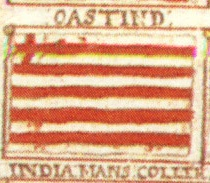East India Company's Early Ships in India (Part II)

First Anglo Burmese War Source:https://commons.wikimedia.org/wiki/File:First-Anglo_Burmese_War.jpg The First Anglo Burmese War that took place from early march 1824 till late February 1826, placed great financial burden on the East India Company but reduced Burma and its rulers to a weak state from the level of a peer of the East India Company's British India. This had happened with other Indian kingdoms before and would happen with many kingdoms in the 19th century. The Charter Act of 1833 tried to create a more centralised form of governance in British India with the newly created position of Governor General of India and transformed the East India Company from a sole commercial entity with administrative powers to a Governing body with overwhelming governmental duties and responsibilities. It lost its monopoly over the two remaining items of tea and trade with China and soon the right to trade altogether. The Board of Control had full power over EIC but the territories were a
